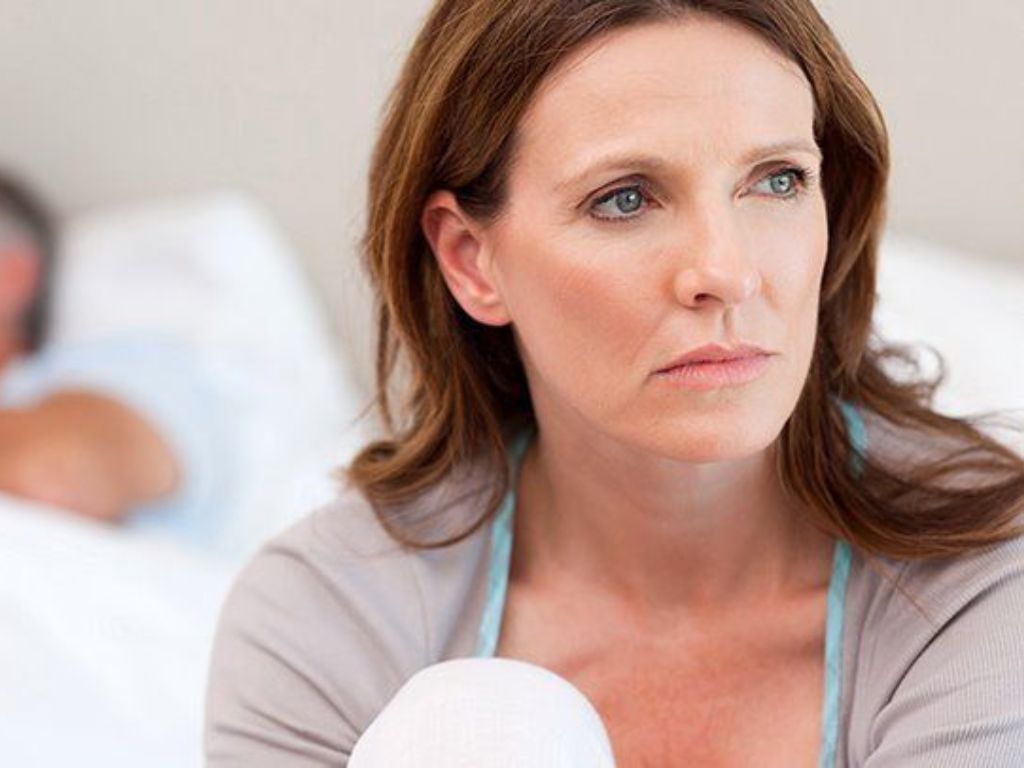When you go through menopause, you might find that having sex isn’t as satisfying as it previously was. Between 17% and 45% of postmenopausal women report having painful erections, often known as dyspareunia. Regular vaginal thinning and dryness are the cause. However, other medical and psychological issues might affect how sex feels. (Pain after Intercourse Menopause)
You don’t need to stop having sex or put up with the discomfort. However, the longer you wait to seek medical attention for your symptoms, the worsening they may get. If you’re unsure of what’s happening with your vagina, speak with your doctor. They can assist you in identifying and treating the discomfort’s root cause.
Causes of Pain after Intercourse Menopause
Less estrogen.
Hormone levels vary from person to person. But as a woman enters menopause, her estrogen levels fall. Your vaginal blood flow is reduced as a result. Vasovagal atrophy could occur. The tissue becomes brittle, dry, and thin at that point. You might have soreness at the opening of your vagina during sexual activity.
The acidity of your vagina also increases. This increases the risk of uncomfortable vaginal and urinary tract infections (UTIs). Your vulva, the skin surrounding your vagina, may also become irritated.
Pelvic Floor Disease.
Your bladder’s and vagina’s surrounding muscles may spasm. They might also become slack or tight.
- Tension: Your pelvic floor muscles may tense during uncomfortable intercourse. It’s your body’s defense mechanism against encroachment. You don’t intentionally do it. When you have intercourse, severe pain will be felt. It could appear that your spouse is striking something or that your vagina has shrunk. A nuisance may follow sex.
- Weakness: After menopause, your pelvic floor may become less sturdy. Your uterus or blad may compress your vagina.
Also Read – Can a Woman Get Pregnant after Menopause ?
Insufficient Sex
Avoiding painful situations is common sense. But engaging in relaxed sexual activity, whether by yourself or with a partner, can be beneficial for your vaginal health. Blood flow is increased, assisting in lubrication and fortifying vaginal tissue. It’s crucial to address the cause of your pain.
Other Health Issues | Pain after Intercourse Menopause
Untreated diabetes, heart disease, high blood pressure, and other illnesses can all reduce blood flow and impact sexual function.
Lowered Arousal
Lowered arousal is a common condition in which a person experiences a reduced interest in sexual activity or a reduced ability to become sexually aroused. This can be caused by a variety of factors, including stress, hormonal changes, relationship problems, and certain medical conditions.
If you are experiencing lowered arousal, it is important to talk to your doctor. They can help you identify the underlying cause of your symptoms and recommend treatment options. Treatment may include medications, therapy, or lifestyle changes.
It is also important to communicate openly with your partner about your feelings and concerns. They can provide support and help you work together to find ways to improve your sexual relationship. Additionally, there are many resources available online that can provide information and support for people dealing with lowered arousal.
Furthermore, it is simple to understand how issues like hot flashes, mood swings, and sleep issues could decrease your desire for sex.
In addition, the following factors could lessen your desire:
- Inadequate foreplay
- Relational issues,
- Depression,
- Stress,
- Fears related to aging,
- Low sense of self
- Gaining weight,
- Inadequate exercise,
- Drugs, such as antidepressants,
Skin scars
Some women claim to experience pain in the areas where hard skin develops during surgery or childbirth. Because the tissue around your vaginal opening is weaker after menopause, these scars could ache a little more.
Similar Conditions | Pain after Intercourse Menopause
You may experience painful sex for reasons other than menopause, such as:
Vaginismus. You might unintentionally contract your vaginal muscles out of fear of uncomfortable intercourse. This may make sexual activity impossible. Additionally, using a tampon or having a pelvic check might cause pain.
Vulvodynia. When touched or during sex, the outside of your vagina may sting or burn. This illness can afflict women of any age.
Skin problems. The vaginal skin may be bothered by genital sores, psoriasis, lichen sclerosis, or eczema.
Also Read – Menopause Symptoms | Is The Menopause Painful?
Actions You Can Take to Reduce Pain | Pain after Intercourse Menopause
To increase your sexual enjoyment, try these tips:
Increase your glide.
To reduce pain brought on by dryness, use lubricant both before and after sex. Products made of silicone and water are both available over the counter. Try various brands if one irritates your skin.
Moisturize.
Over time, a vaginal moisturizer can reduce dryness. Use it frequently rather than just before sex.
Schedule foreplay time.
You become more wettable as you become more excited. Don’t only concentrate on The Big Act. Spend some time stroking, kissing, or trying out different positions. Discuss what feels nice and what doesn’t with your spouse.
Wash carefully.
The vaginal area should not be exposed to soaps, shower gels, bubble baths, or oils. These might make the skin dry. It can be cleaned with a warm water rinse. Avoid sprays and scents as well. Wash your underpants in mild soap when you’re having issues. Also, wear white cotton underwear.
Sex up more.
Regarding the condition of your sex organs, “use it or lose it” is applicable. Blood flow is improved while stimulated. So, having sex makes you less dry if other sex actions pain. Self-gratification may be helpful.
When to Visit a Physician
Make an appointment with your doctor if lubricants and vaginal moisturizers aren’t providing enough relief.
Frequently Asked Question –
Ans. – The dryness and thinning of vaginal tissues that result from the decline in estrogen levels as women approach and pass menopause can make penetration and intercourse painful for many women.
Ans. – Once menopause is over, the pain can occasionally become less intense. It persists in some females.
Ans. – Women may feel discomfort during or after intercourse, either deeper in the pelvis or in the vagina.
Ans. – Typically, muscles will involuntarily contract in the pelvis and pelvic floor after orgasm, causing a cramping feeling after sex
Ans. – Because every person is unique, there are no guidelines for when women should cease having sex. Studies have shown that having sex helps to reduce stress.













